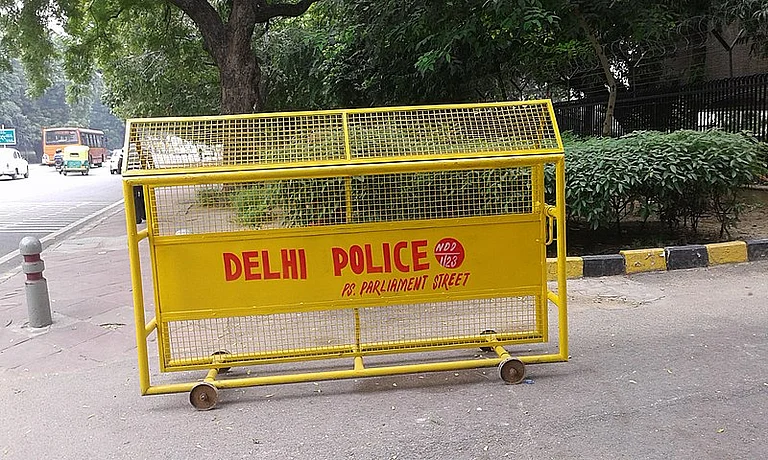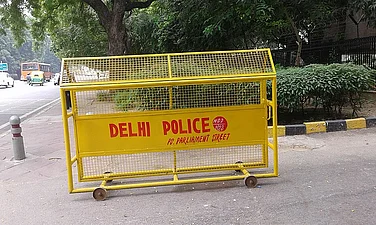So on July 31, 2004, when Admiral Prakash drove into naval HQ to formally take over as its 20th chief, there was great hope that the navy, traumatised by the Admiral Bhagwat episode, would finally get some stability. But since then the navy has seen more upheavals. In December ’05, stealth ship INS Trishul collided with commercial ship Ambuja Laxmi off the Mumbai harbour. In April ’06, missile corvette INS Prahar sank after colliding with merchant ship Rajiv Gandhi. In Kashmir, an overcrowded naval boat sank in the Wullar lake, killing 21 children and two teachers. All through this, navy brass kept insisting that all was fine.
But the naval war room leak case has proved to be the nadir, so far. For Prakash, the ingredients of a scandal had started simmering since the day he took over. Arms dealers Shankaran and Parashar were on the exclusive guest list for cocktails at 12, Rajaji Marg, the official residence of the navy chief, on that day itself.
South Block insiders say Prakash has been a worried man since July ’05 when the war room leak first hit the headlines. When Shankaran’s name emerged, many say the navy chief panicked. Through all this, Union defence minister Pranab Mukherjee has been a strong supporter of Prakash, although his statements on the case have always been contradictory, to say the least.
Some say Admiral Prakash has failed to practice what he preached. In 2005, a naval officer wrote a demi-official letter to Prakash after he filed a case in court for being passed over for promotion. Prakash immediately wrote back and enclosed an article he had authored in 1999 as commandant, National Defence Academy. ‘A Matter of Honour’ told the tale of Admiral Jeremy Boorda, chief of naval operations of the US Navy, who committed suicide on May 23, ’96. A routine check had revealed that Boorda was sporting a war medal he was not entitled to. When the issue was "raked up in Newsweek magazine, Boorda shot himself", wrote Prakash. He added that Boorda "could have clung to office" but instead "came to the conclusion that his service was more important than him, or his life".
Prakash sent the article because he felt that when officers went to a court of law, "it is inevitable that he will show either the service or his brother officers in a poor light". Prakash had only one panacea—"put in your papers". Ironically, he added, "it is a sign of our times that this option is not considered very smart these days".
The war room leak case has put a number of other senior officers too in the dock. How did Vice-Admiral Venkat Bharatan, then chief of personnel and responsible for all disciplinary cases, allow the three officers to be dismissed without a trial? Was Bharatan, slated to take over as vice-chief of naval staff soon after, in a hurry to bury the scandal? And why didn’t he or Prakash recommend to the government that other naval officers (recently raided by the CBI) also be investigated?
Why didn’t they recommend that Parashar and Shankaran be questioned to uncover the "wider conspiracy"? When Outlook posed these questions to naval HQ, it received the stock reply—the matter was sub judice. Ironically, naval HQ is now taking shelter behind the same courts Prakash once wrote would "disregard any pleas based on abstract notions like customs and traditions of service...."


























